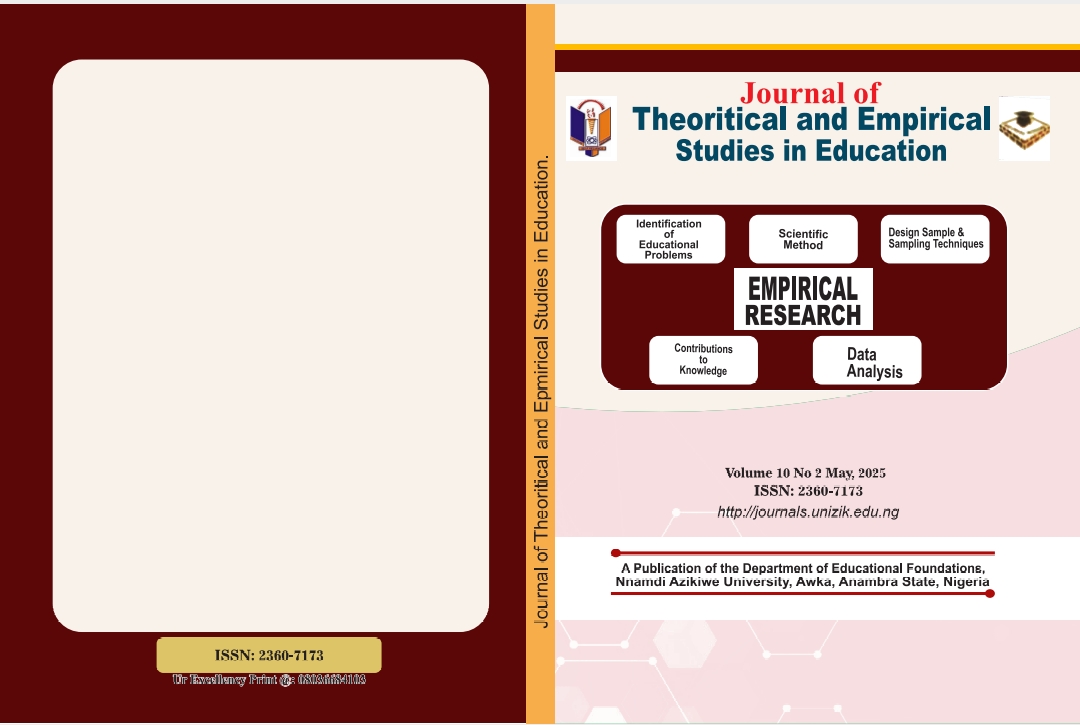The Effect of Role-Play Instructional Package on Upper Basic Students’ Learning outcomes in Oral English in Kwara State, Nigeria.
Keywords:
Role-Play Instructional Package (RPIP), Oral English, Learning Outcomes.Abstract
This study investigated the effect of the Role-Play Instructional Package (RPIP)
on students' learning outcomes in Oral English in Kwara state in comparison to
traditional lecture methods. The diverse tribes and languages in Kwara State
create interference to effective language skills learning. The study also examined
the influence of attitude of students towards oral English learning. Utilizing a
quasi-experimental design, the research involved 100 students divided into
experimental and control groups. The experimental group received instruction
through RPIP, while the control group experienced traditional lectures. Two sets
of research instruments were used to collect data for the study. These were
questionnaire on student attitude towards Oral English (QOSATOE), English
Language Speech Sounds Performance Test (ELSSP). The questionnaire on
students’ attitude QOSATOE consisted of 15 items. The ELSSP consisted of 40
questions. The 40 items were all derived from NECO question papers. The face
and content validity were carried out through experts in the Faculty of Education,
Ekiti State University. The reliability of the instruments were ascertained in a
pilot testing that was carried out in schools outside the study sample. The data
collected for the study were analysed using the descriptive and inferential
statistics, t-test was used for the experimental group. Hypothesis was tested at
0.05 level of significance. The findings on attitude of students towards Oral
English before treatment, revealed that majority of the students had negative
attitude towards Oral English before treatment. Results indicated a significant
improvement in the learning outcomes of students taught with RPIP, with the
experimental group showing a substantial mean gain in post-test scores, whereas
the control group showed no significant change. The study underscored the
potential of RPIP as an effective instructional strategy that can be broadly applied
across diverse student demographics. It is recommended that RPIP strategy is a
student-centered approach and effective learning strategy adequate for teaching
oral English and cater to diverse language pronunciation defects in Oral English.
Future research should explore the long-term impacts of RPIP and its
effectiveness across various subjects and educational level.




